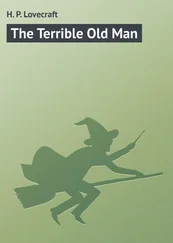1 ...8 9 10 12 13 14 ...19 A day of sightseeing and I retire in the evening to a café on the zócalo, order a bowl of soup and people-watch. Mexicans of all classes dress smartly for Saturday evening in the city. A group of US students stride at speed diagonally across the square. Unbrushed hair, shorts and T-shirts, sandals, sleeveless tops: these young seem to me so untidy and disrespectful of local mores.
Disrespectful or uncaring? Theirs is the ascendant culture.
Oaxaca, Sunday 21 May
I attend Mass at the first church built in Oaxaca – San Juan de Dios: simple in decor, white altarpiece decorated with eight big vases of white dahlias. My travels are solitary and I recharge my human contact batteries by shaking hands at the end of the service with neighbours in the congregation.
Later I visit a small orphanage run by two nuns, one Mexican and the other from Chile. My companions are a paediatrician who gives his free time to the orphanage, his architect wife and their few-months-old daughter. Our arrival coincides with the children’s midday meal. The children range from six to eighteen years. Not all of them are true orphans; some have only one deceased parent. However, all come from a background of crippling poverty. Some have suffered permanent brain damage inflicted by long-term protein deficiency. Others are openly intelligent.
I congratulate the Chilean nun, a woman in her early sixties, on the extraordinary peace that reigns in the refractory. ‘La lucha,’ she replies. ‘La lucha.’ A daily struggle.
So comment Cubans on life under Castro, El Commandante en Jefe.
A six-year-old holds out her arms to me to be lifted, then buries her face in my shoulder. Later, a small boy installs himself on my lap as I chat with fourteen-year-old Theodora who has ambitions to be a secretary and, as she admits shyly, a writer.
Boys, four to a room, sleep on the ground floor; girls are upstairs. The older girls share with the younger ones, as mother substitutes. Toy rubber and plastic animals stand on the dividing walls between the girls’ showers. This is a gentle place for kids to grow, gentle and filled with love – so unlike those erstwhile Irish orphanages in which generations of children suffered abuse.
I am told few foreigners frequent or know of the restaurant where we lunch. We eat at a table in the garden. I blanch as the paediatrician orders cockroaches. Thank God ‘cockroach’ is the local slang for crayfish tails grilled on charcoal. And thank God (or the generosity of the paediatrician) that I never see the bill – I suspect that it would have been more than I usually pay for my food in a week.
Conversation turns to politics. Mexico was ruled for decades with enforced corruption by the Party of the Institutionalised Revolution (a splendidly Orwellian name). In the present election, presidential candidates from the ruling conservative PAN and the socialists are abreast in the opinion polls. The paediatrician expects and hopes for a socialist victory. He is dark-skinned, from a peasant family and worked his way through medical school. He was expected to practise as a state-employed GP out in the country. In studying to become a specialist, he was handicapped by racism among senior doctors in the hospital. Nurses were instructed to report him as drunk if he came to the hospital at night to visit patients. He talks of the countryside and a system of land tenure instituted by the revolution, which condemns the peasantry to poverty. Often they are better off selling their land to big landowners and working for wages. They are victims either way. Many leave to find work in the city. There is no work. Few Mexican manufacturers can survive competition from China and its cripplingly low labour rates.
Oaxaca, Monday 22 May
A day of expectations: I am due to talk to students at two public high schools. I rise early, brush, shower and shave. Clean shirt, clean trousers. My shoes were polished yesterday evening. I breakfast on the patio with two Chilean diplomats and watch a hummingbird poke his beak in the red hibiscus. I wheel the bike out to the road. Teachers within the Oaxaca state system have come out on strike. The teachers are heading for the city.
I visit the most prestigious of Oaxaca’s private schools, Blaise Pascal. While waiting to be interviewed by the headmistress, I sit in the shade of a jacaranda tree outside the school caféteria. Mid-morning break heralds the any-school-in-the-world charge. In Herefordshire, students demand bacon butties. Here, the favourite is stuffed tortillas. Dress is less formal: jeans, trainers, school sweatshirts.
The paediatrician asked yesterday whether I found Mexico racist. I replied that it was difficult for a foreigner to be sure, that I believed it was less so among the younger generation. Now I watch the younger generation in their break. At my age, so much is a reminder of the past. I spot one splendidly sulky, heavy-jowled Catalan matron of fifty going on seventeen. A group at a table are identical in gesture and in the way they laugh to my son Josh and his friends. I see no demarcation by colour. Do I know how to look?
Two teachers have called in sick (the strike?). The head of the English department, an Englishman, is delighted to inflict me on his students. A young Mexican American is in charge of my first class. This is her first day teaching at the school. Classes are conducted in English and she asks me to speak to the students in English. Most of the students are sixteen. I relate a little of my background as a writer and the purposes of my journey. I search faces for irritation, boredom, contempt.
I ask in Spanish whether they understand, more or less.
These are teenagers. Naturally they respond with silence.
‘More?’ I ask.
More silence.
‘Or less?’
This raises a shy laugh.
I ask for questions. From teenagers? Stand out from the group? Am I crazy? They will keep their questions for each other out of class.
So I ask the questions. How many have relatives in the north – the US? Four raise their hands. What do they think of Bush planning to build a wall?
‘Stupid,’ a girl says, and the class nods.
They know of Condoleezza Rice?
Yes.
She made a speech in Europe stating that Americans never torture. Do they agree?
Nobody moves.
Have they understood? I rephrase the question. ‘How many of you believe that the American government condones torture?’
Serious stuff is embarrassing. They whisper to each other. One raises his hand, then another, then all together – although no more than shoulder height.
I ask what differences exist between their parents’ generation and their own.
‘The way we think,’ a girl answers to general agreement.
‘Think in what way?’ I ask.
‘You know,’ accompanied by a teenage shrug that I recognise from home as a definite end to the conversation.
I try a different tack. ‘I have sons. Jed is sixteen, Josh twenty. If I asked them the same question, they would say that I wouldn’t understand. That’s what you tell your parents, right?’
Laughter.
A boy asks, ‘What do you think the differences are?’
This seems of general interest – or it gets them off the hook of being required to supply answers themselves.
I say that that I made my first trip through Mexico in the early eighties. I don’t recall ever seeing young people kiss on the street. Now it is moderately commonplace.
‘What else?’ a girl asks.
I think, what the hell? Go for it. I tell them of the paediatrician’s accusations of racism – that I had been watching them at the canteen.
They wait.
I say, ‘I’m a foreigner. I can’t tell. I don’t know how to look – although it seems to me that, if racism does exist, it is less common among your generation.’
Читать дальше





![Джон Скальци - Questions for a Soldier [Old Man's War 1.5]](/books/418139/dzhon-skalci-questions-for-a-soldier-old-man-s-wa-thumb.webp)






